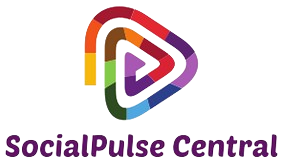The Importance of Ethical Hacking in Combating Digital Piracy
Introduction
Digital piracy poses a significant threat to the global economy, intellectual property rights, and the creative industries. As digital content becomes increasingly accessible, the methods used to protect this content must evolve. Ethical hacking emerges as a vital tool in the fight against digital piracy, providing proactive measures to safeguard digital assets and ensure their rightful distribution.
Understanding Ethical Hacking
Ethical hacking involves the practice of legally penetrating systems and networks to identify vulnerabilities that malicious hackers could exploit. Ethical hackers, also known as white-hat hackers, work to strengthen security protocols by uncovering weaknesses before they can be exploited for illegal activities like digital piracy.
Key Roles of Ethical Hackers
- Vulnerability Assessment: Identifying and assessing potential security gaps within digital platforms.
- Penetration Testing: Simulating cyber-attacks to evaluate the robustness of security measures.
- Security Audits: Comprehensive reviews of an organization’s security policies and implementations.
- Incident Response: Developing strategies to respond to and mitigate the impact of security breaches.
Combatting Digital Piracy with Ethical Hacking
Proactive Defense Mechanisms
Ethical hackers play a crucial role in establishing proactive defense mechanisms against digital piracy. By continuously testing and improving security systems, they help prevent unauthorized access and distribution of digital content.
Protecting Intellectual Property
Intellectual property (IP) is the backbone of many industries, including software, entertainment, and publishing. Ethical hacking ensures that IP rights are protected by identifying and mitigating threats that could lead to IP theft or unauthorized distribution.
Enhancing Security Protocols
Through regular security assessments and updates, ethical hackers help organizations enhance their security protocols. This ongoing process is essential in staying ahead of cybercriminals who continuously develop new methods to bypass security measures.
Benefits of Ethical Hacking in Combating Digital Piracy
Early Detection of Threats
Ethical hackers are instrumental in the early detection of potential threats. By identifying vulnerabilities before they are exploited, organizations can take corrective actions to prevent digital piracy incidents.
Cost-Effective Security Measures
Investing in ethical hacking services is cost-effective in the long run. Preventing a single instance of digital piracy can save organizations from significant financial losses associated with data breaches, legal fees, and damage to reputation.
Compliance with Legal Standards
Many industries are subject to stringent legal and regulatory standards regarding data protection and intellectual property. Ethical hacking helps organizations comply with these standards by ensuring that their security measures meet or exceed legal requirements.
Case Studies: Ethical Hacking Successfully Combating Digital Piracy
Case Study 1: Media Streaming Platforms
Media streaming platforms rely heavily on ethical hacking to protect their content from unauthorized distribution. Ethical hackers identify loopholes in streaming protocols, implement stronger encryption methods, and monitor for suspicious activities, thereby significantly reducing instances of piracy.
Case Study 2: Software Companies
Software companies employ ethical hackers to safeguard their products from cracking and unauthorized sharing. Through rigorous testing and security enhancements, these companies ensure that their software remains secure and protected against piracy attempts.
The Future of Ethical Hacking in Digital Piracy Prevention
The landscape of digital piracy is continuously evolving, and so must the strategies to combat it. Ethical hacking will remain a cornerstone in digital piracy prevention, with advancements in artificial intelligence, machine learning, and automation enhancing the capabilities of ethical hackers to anticipate and counteract emerging threats.
Integration with Artificial Intelligence
Integrating AI with ethical hacking can lead to more sophisticated threat detection and response mechanisms. AI algorithms can analyze vast amounts of data to identify patterns indicative of piracy attempts, enabling quicker and more efficient responses.
Collaborative Efforts
Collaboration between ethical hackers, cybersecurity experts, and industry stakeholders will be crucial in developing comprehensive strategies to combat digital piracy. Sharing knowledge and resources can lead to the creation of more robust and resilient security frameworks.
Conclusion
Ethical hacking is indispensable in the battle against digital piracy. By proactively identifying and addressing vulnerabilities, ethical hackers play a critical role in protecting digital content, safeguarding intellectual property, and ensuring the continued growth and integrity of digital industries. As cyber threats evolve, the importance of ethical hacking will only increase, underscoring its vital role in maintaining a secure and fair digital landscape.
